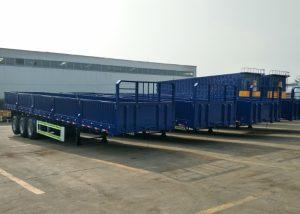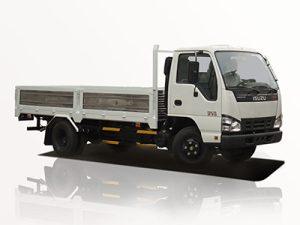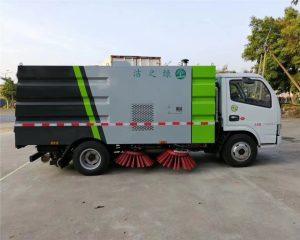Monday to Saturday - 8:00 -17:30
Airport Fire Service Jobs: A Comprehensive Guide
In an era where safety is paramount, airport fire service jobs play a critical role in ensuring the protection of life and property at airports. As essential responders to emergencies, these specialized firefighters undergo unique training and carry specific responsibilities tailored to the aviation environment. This article aims to delve into the world of airport fire service jobs, exploring what they entail, the requirements, training, and career opportunities available in this crucial sector.
Understanding Airport Fire Services
The primary mission of airport fire services is to prevent, manage, and mitigate emergencies related to aircraft incidents. The airport environment poses unique challenges, including dealing with highly flammable aviation fuels, hazardous materials, and the complexity of airport layouts. Airport firefighters, often referred to as Aircraft Rescue and Firefighting (ARFF) personnel, are specifically trained to handle these challenges.
The Role of an Airport Firefighter
Airport firefighters play multi-faceted roles within their organizations. Their duties include:
- Responding to aircraft emergencies and incidents.
- Conducting fire prevention training and safety inspections.
- Participating in drills and training exercises.
- Using specialized firefighting equipment tailored to airport operations.
- Assisting in ground safety operations during take-offs and landings.
Importance of Airport Fire Services
Airport fire services are not only vital for the immediate response to fires but also play a significant role in overall airport safety. They work alongside other airport security and safety personnel to ensure comprehensive emergency planning and effective incident management. Their presence helps mitigate risks, ensuring the safety of passengers, crew, and airport staff.
Qualifications and Requirements for Airport Fire Service Jobs
Pursuing a career in airport fire services requires a combination of education, training, and certifications. Below are the typical qualifications you may need:
Educational Background
Most airport fire service jobs require a high school diploma or GED. However, having relevant higher education at an associate or bachelor’s level in fire science, emergency management, or aviation safety can enhance your candidacy.
Necessary Certifications
Airport firefighters must obtain specific certifications, including:
- Firefighter I and II certifications from state or national fire academies.
- Aerial firefighting certification.
- Emergency medical technician (EMT) or paramedic certification.
- Specialized ARFF training programs recognized by the FAA.
Physical Fitness Requirements
Physical fitness is crucial in this demanding job. Candidates must pass rigorous physical tests assessing agility, strength, and endurance. This might include sprinting, lifting heavy equipment, and other fitness assessments.
Training for Airport Fire Service Jobs
Training for airport fire service jobs entails a mix of theoretical knowledge and practical skills. Below are the key components of training:
Initial Training Programs
Upon hiring, new recruits typically undergo initial training that includes:
- Classroom instruction on aviation safety regulations, fire behavior, and hazardous materials.
- Hands-on training with firefighting tools and techniques.
- Simulated emergency responses using fire training facilities.
Ongoing Training and Professional Development
Because technologies and regulations evolve, ongoing training is essential. Firefighters are regularly updated on:
- New firefighting equipment and techniques.
- Changes in aviation safety standards.
- Advanced medical training to enhance EMT skills.
Career Advancement Opportunities
Airport fire service jobs offer a variety of pathways for career advancement. Some common progression opportunities include:
Specialized Roles
Firefighters can specialize in areas such as hazardous materials, training, or operations management. Specialized roles often require additional certifications and training.
Leadership Positions
Experienced firefighters may advance into supervisory roles like Fire Captain, Battalion Chief, or Fire Chief, overseeing operations and managing personnel.
Transitioning to Other Emergency Services
Skills gained in airport fire service can also translate into other areas of emergency services, including municipal fire departments or disaster response agencies.
Benefits of Working in Airport Fire Service
Choosing a career in airport fire services comes with numerous benefits, including:
Job Stability and Security
Given the essential nature of the role, airport fire service jobs often provide strong job stability, competitive pay, and benefits packages.
Unique Work Environment
Working at an airport offers a dynamic environment, with opportunities to engage in different types of emergency responses and safety management.
Community Impact
Airport firefighters play a critical role in public safety, providing fulfilling opportunities to serve the community and protect lives daily.
Common Challenges Faced in Airport Fire Services
While airport fire service jobs are rewarding, they are not without challenges. Key difficulties include:
High Stress Levels
Responding to emergencies can be incredibly stressful, requiring quick thinking and composure in chaotic situations.
Complex Working Conditions
The airport environment is unique, often involving risks related to aircraft and the presence of hazardous materials that require specialized training and caution.
Shift Work and Irregular Hours
Firefighting often involves working irregular hours, including nights, weekends, and holidays, which can be demanding for personal lifestyles.
Salary Expectations for Airport Firefighters
Understanding salary expectations can help individuals make informed career choices in airport fire service jobs. The following table outlines estimated salary ranges based on experience in the field:
| Experience Level | Average Salary |
|---|---|
| Entry-Level | $35,000 – $50,000 |
| Mid-Career | $50,000 – $70,000 |
| Experienced | $70,000 – $90,000 |
| Senior Roles | $90,000 – $120,000+ |
Finding Airport Fire Service Jobs
To secure a job in airport fire services, look for opportunities with the following:
Job Boards and Recruitment Platforms
Many job boards specialize in emergency services positions. Websites like Indeed, Glassdoor, and specialized fire service sites can help you find openings.
Networking and Professional Associations
Joining professional fire service organizations can provide networking opportunities and job leads. Consider entities such as:
- International Association of Fire Fighters (IAFF)
- International Fire Service Training Association (IFSTA)
Frequently Asked Questions (FAQs)
1. What is the difference between a municipal firefighter and an airport firefighter?
Municipal firefighters respond to a wide range of emergencies, while airport firefighters specifically deal with aviation-related incidents, utilizing specialized training and equipment.
2. Do airport firefighters need to have prior firefighting experience?
Many airport fire departments require some level of firefighting experience or certifications, but entry-level positions may be available for candidates willing to undergo training.
3. What types of equipment do airport firefighters use?
Airport firefighters use specialized equipment such as ARFF trucks, foam fire suppression systems, and thermal imaging cameras, tailored to aviation needs.
4. Is ongoing training required for airport firefighters?
Yes, ongoing training is crucial due to evolving technology, safety standards, and techniques in firefighting. Regular drills and refresher courses are standard in the profession.
5. Can I work as an airport firefighter with a criminal record?
A criminal record may impact hiring potential. Each airport authority has policies regarding background checks. It’s best to check with the specific agency for their requirements.
6. What are the physical requirements for airport firefighters?
Physical requirements typically include passing fitness tests that assess strength, agility, stamina, and the ability to work under pressure. A strong focus on physical fitness is essential in this line of work.









